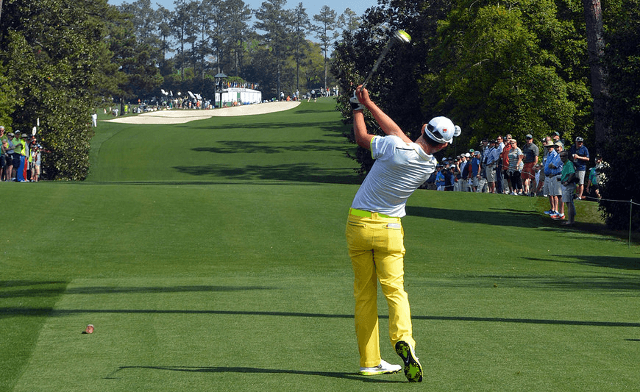
Top 4 Deal Breakers Of Success In Golf
From my experience working with elite players, I can put the reasons for not being able to break-through from good to elite into 4 “deal breakers of success” in golf. Here they are…
Not having a plan/goals for your success in golf
2016 is your opportunity to turn over a new leaf and get smart about your plan.
As I said in my last post “Your Elite Player Game Improvement Plan for 2016”, having goals is important, but what specific goals you choose is even more important. Your long-term goals need to be broken down into smaller, more focused goals which keep you on the optimal path. Long-term goals are too vague. The brain needs more focus and certainty, which is why I recommend you put together a detailed road-map. These short-term (or 3 month) goals should be performance targets for those things that you MOST need to work on, e.g.”lowering Putts Per Green In Regulation to 1.8 in 3 months”. Then you need to figure out how to do it and structure your practice time effectively. Achieving these smaller goals will build your confidence in layers.
Practice more effectively
When students first come to me (especially younger players), it’s not uncommon for them to have no clear goals, no proper allocation of their practice time, and no good idea of what exercises to do.
I’d like you to be able to start practicing less but more effectively.
In one of my recent articles, I talked about how to divide all your practice sessions into 1/3s of block, random and pressurized practice. So however long you have to practice, 1/3 is block practice, 1/3 is random and 1/3 pressurized.
Block practice is about grooving a movement – a target is not necessary.
Random practice is about testing your skills randomly – hitting to different targets and distances. E.g. you might try the “nine shots of golf” exercise.
Pressurized practice is about putting yourself under the same pressure you feel on the course and learning how to keep control of your thoughts and emotions.
If your like to learn more about how to practice more effectively, you can check out my elite player practice drills book.
Not having clear process goals during your rounds
Your rounds need to be about process, not outcome goals. Setting the target to shoot a good score, is not the way achieve it. You need to understand more about how you’ve gone about playing well in the past and make those things the goals. This could be things like, using visualization, techniques to stay relaxed, positive self-talk, being present and focused, getting properly aligned etc. There are many process goals, but it’s important you for you to pick out the top 3-4 that are best for you and make repeating those the measure of success for the round. The process of managing yourself from warm-up through to post-round review is the main focus of my Mental Game Blue-print.
Limiting beliefs and poor self-image
What do you think holds you back in your golf game? Do you often talk about it and reinforce it?
E.g. “I’m such a bad driver, I’ll never be able to win with this inaccuracy off the tee.” This is called a Limiting Belief and to reach your best you need to change this.
Dispute your limiting belief with something you know to be true i.e. list times you’ve hit great drives and hit a lot of fairways.
I have all my students keep a “Success log” where they write down ONLY their successes during practice and play. What you do here is start reinforcing positives (instead of focusing on the negatives) and changing those limiting beliefs.
If driving is the area you most need to improve, set yourself a 3 month goal and structure your practice accordingly. A winner doesn’t have any “limiting beliefs”, the potential is limitless.
If you’re going to break through into the ranks into elite player status (or at least enjoy a better 2016), you need to think about, and make sure the deal isn’t broken by, the 4 areas we’ve covered in this article. If you have any questions or feedback, please leave a comment below.
Photo by Ryan Schrieber

